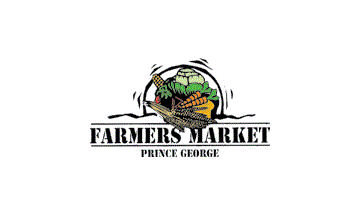As the interest in local food continues to grow, the province's farmers markets are having a larger impact on local economies, according to a recent study led by a local professor.
In 2012, farmers markets contributed nearly $170 million to the provincial economy, an increase of 147 per cent since the last study in 2006 was conducted by Dr. David Connell of the University of Northern B.C.'s School of Environmental Planning and the B.C. Association of Farmers Markets.
In Prince George, that impact was estimated at $1.4 million, based on the assumption that for every dollar spent at the market, another 50 cents is spent in the local economy. This is compared to the estimated $865,000 injected back in 2006.
The study also estimated the additional spending at neighbouring Prince George businesses on market days to be more than $725,000 annually.
While the growth in farmers markets across the province is evident through their increasing profile, Connell said that what surprised him about the results was the increase to the amount that customers spend.
"I think that is the most significant change in that it means that not just more people are showing up, even the people who are coming regularly are now spending more," he said. "So they're finding more things to purchase. It's becoming more of a regular shopping habit."
Surveys were conducted last year at 33 markets across the province. Locally, respondents spent an average of $27.22 each on the day of the assessment. In 2006, that average was $22.55 per customer.
According to the study, the five most-important factors that farmers market shoppers consider when buying food include nutritional content, whether it's grown or produced locally or in B.C, if it's in season and animal welfare.
"Farmers markets continue to serve as the face of agriculture in B.C.," said Elizabeth Quinn, executive director of the B.C. Association of Farmers Markets. "There has been significant growth in the number and vitality of farmers markets in B.C. and it is important to understand not only what they contribute but also how much they contribute to local neighbourhoods, cities and towns."
The number of farmers markets across B.C. increased by more than 62 per cent in the six-year span between surveys.
Having a clear indication of growth lends legitimacy to farmers markets, said Connell, which in turn can help influence decision making and future planning by both municipal and provincial governments.
Connell has been studying farmers' markets for years and initiated the 2006 survey. He said he believes changing the food system is one major way to take a positive step to becoming a more sustainable society.
Farmers markets are the most-visible element of the current local food system, he added.
"Because if we change our food systems, it changes the way we relate to each other, in terms of there's more one-on-one, face-to-face contact with people you know," he explained. "And the more local food is demanded, the more it will be supplied, which has an impact on the land base and that of course impacts the structure of the local economy."



